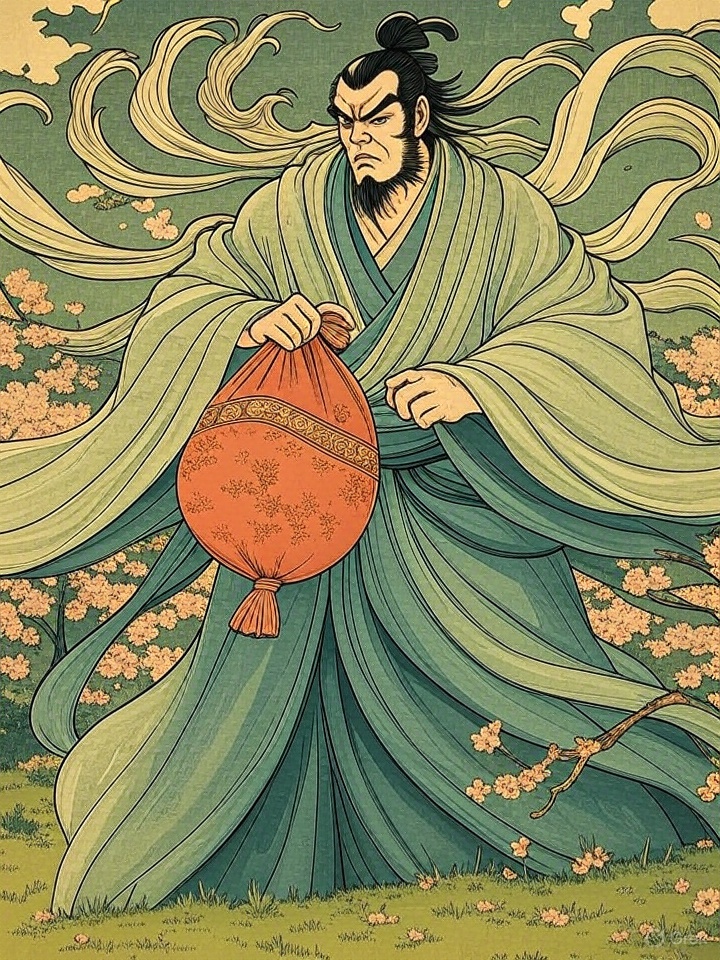Name Meaning
Overview
Fūjin (風神) translates directly to “Wind God” and is one of the oldest deities in Japanese mythology, often seen unleashing storms and clearing skies with his bag of winds.
- Fū (風) = Wind
- Jin (神) = God or deity
Origin
- Prominent in Shinto and Buddhist cosmology, where he appears as a demonic yet divine figure.
- Often depicted alongside Raijin, the god of thunder and lightning.
- Also has roots in Hindu mythology, where he is similar to the wind god Vayu.
Appearance
- Usually shown as a muscular, dark-green or blue-skinned demon.
- Carries a large bag or sack over his back filled with powerful winds.
- Wild hair, fangs, and a fierce expression are common features.
Behavior & Myths
- Fūjin uses his wind bag to spread winds across the land, clearing storm clouds or bringing destruction.
- In myth, he helped clear the mist from the world after creation.
- Sometimes causes typhoons or tempests when angered.
Symbolism
- Embodies the raw, untamed forces of nature.
- Seen as both a bringer of life (through air and rain) and a destructive force.
- Honored in festivals and shrines to ensure good weather or appease storms.



